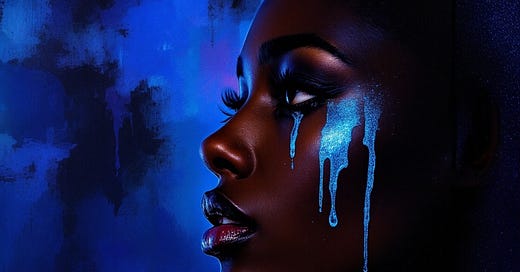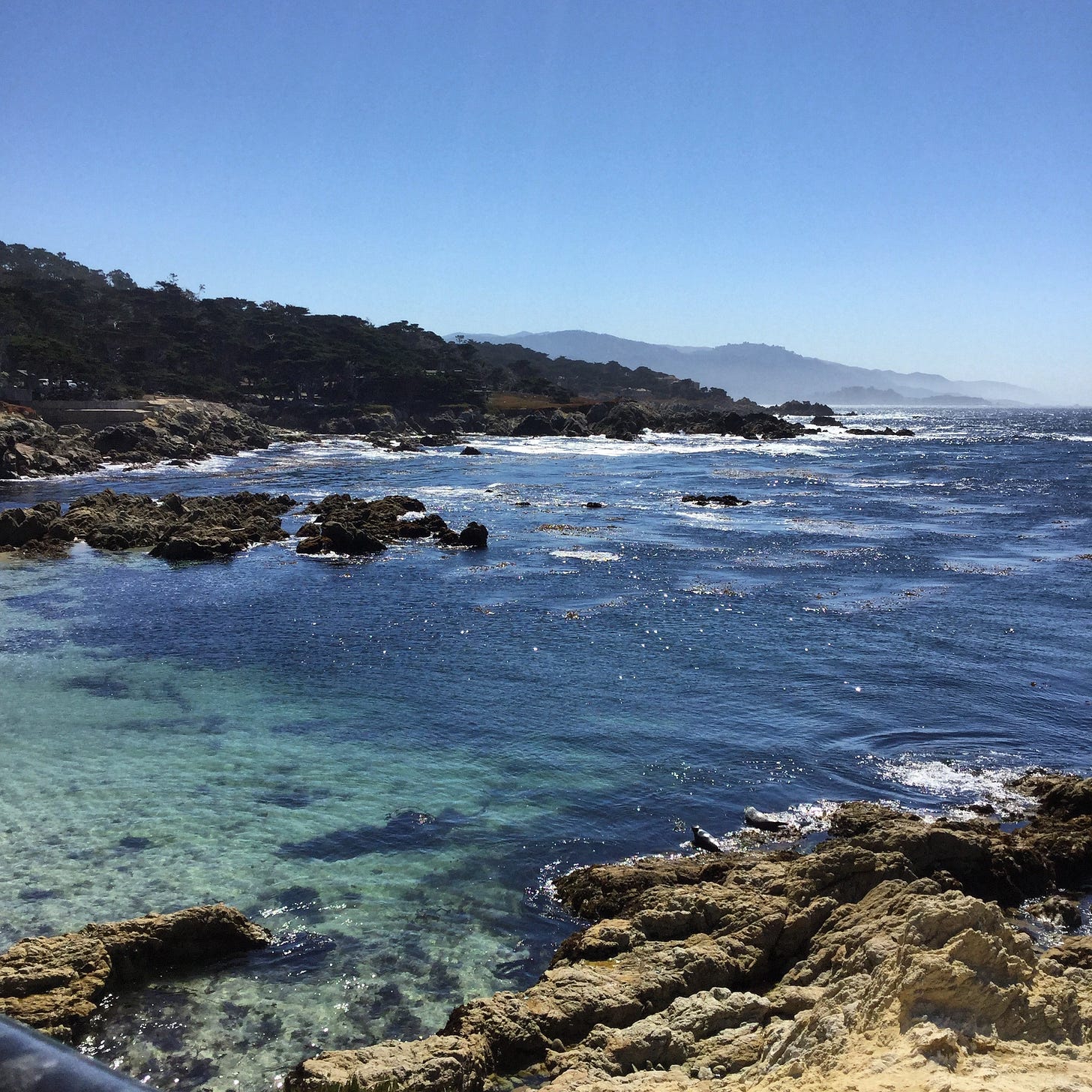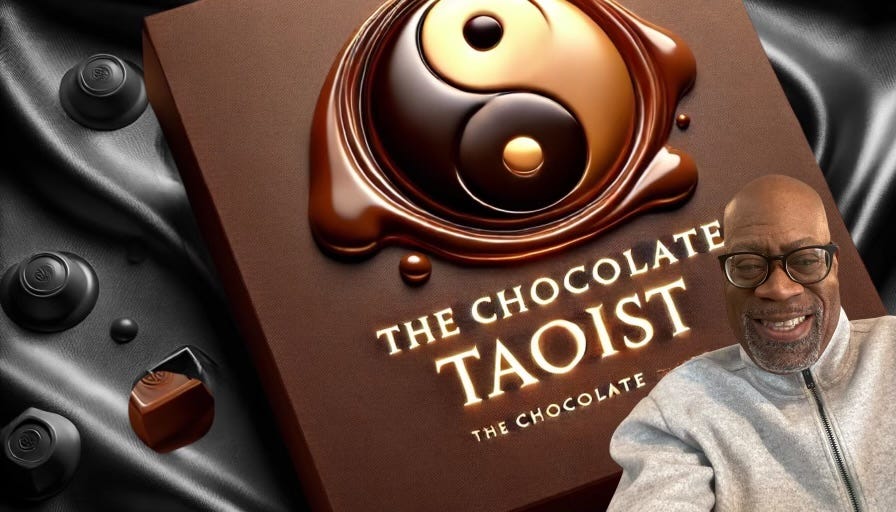I never thought much about my eyes beyond their most obvious function—windows to the world, mirrors of expression—until they recently began leaking uncontrollably.
It was as if the floodgates of a long-dormant dam had burst open, leaving me wiping at tears that spilled without warning. It started subtly, a dampness at the corners, then escalated until my vision blurred, and the constant wetness became a source of irritation and introspection.
Living here in the rarefied altitude of Colorado didn’t help. The dry, crisp air seemed to challenge my eyes to stay hydrated, and the possibility of blocked tear ducts only deepened the mystery.
At first, I approached the problem pragmatically. My natural health practitioner recommended Eyebright and Chrysanthemum remedies, known for their soothing and restorative properties. While these brought some relief, I couldn’t shake the feeling that there was more to this than physiology.
Was there a deeper meaning to these watery eyes? What was my body—or perhaps my spirit—trying to tell me?
This is where my journey into the metaphysical and metaphorical began. In Taoism, “watery eyes” is not merely a physical condition but a profound metaphor—a state of being where one is so attuned to the flow of life, so aligned with the natural rhythm of the Tao, that the eyes appear wet with understanding and compassion.
Water, as the Taoists often remind us, is the ultimate teacher. It adapts effortlessly, yielding to the shape of its container yet powerful enough to carve through stone. Could my watery eyes be an invitation to embody these qualities, to flow rather than resist?
I turned to the I Ching for guidance, and it offered Hexagram 29, “The Abysmal (Water).” Its message was clear: life’s challenges are like a deep and treacherous gorge filled with rushing water.
The only way forward is to move with the current, not against it. It reminded me of the Taoist principle of wu wei—effortless action, the art of aligning with life’s natural flow rather than forcing outcomes. Perhaps my watery eyes were nudging me toward a deeper surrender, a softening of the inner resistance I didn’t even know I was carrying.
And then came the reflection: what does it mean to see the world through watery eyes? In Taoism, water symbolizes clarity and stillness, the essence of inner peace.
Watery eyes, then, can be seen as a manifestation of spiritual cultivation—a sign that you are opening yourself to the world’s beauty and pain in equal measure. To have watery eyes is to be present, to feel deeply, to witness life’s impermanence without turning away.
But it is not just about seeing; it is about being. Water is humble, seeking the lowest places, flowing around obstacles without complaint. Have my watery eyes been a reminder to lower myself, to embrace humility, and to connect more deeply with the world around me?
Perhaps they reflect a burgeoning capacity for compassion, a recognition that life is not to be controlled but embraced in its fluid, unpredictable dance.
I won’t pretend I have all the answers. My journey is still unfolding, as is the mystery of my eyes. Yet, I’ve started to notice the small shifts. When the tears come now, I no longer see them as an annoyance but as an opportunity.
They are a call to pause, to reflect, to ask myself: what am I holding on to that needs to flow away? How can I better embody the yielding nature of water in my daily life?
If you, too, find yourself with watery eyes—whether metaphorical or literal—perhaps it is an invitation for you as well. An invitation to see the world with greater clarity and softness, to flow with life’s current rather than against it, and to trust that even in the moments of greatest uncertainty, water always finds its way.
In the end, maybe my eyes are not malfunctioning at all. Maybe they are simply learning to see differently, to see through the lens of the Tao—a lens that blurs the line between the inner and the outer, where what appears as a challenge is actually a gift. And in that soft, watery vision, a whole new world begins to emerge.
Join us today as a paid member supporter. Or feel free to tip me some coffeehouse love here if you feel so inclined.
Your contributions are appreciated!
Every bit counts as I strive to deliver high quality feature articles into your inbox on a daily basis. Never any paywalls, just my raw thoughts which are open to everyone on what it means to be human.
Much Love,
Diamond Michael Scott — aka The Chocolate Taoist







This resonates with me on so many levels. I have found myself quick to cry. Especially in meditation but often randomly. My teacher reminded me that this means I am connected to and in alignment with Source, with the Universe. That helped me see tears as a gift vs. a nuisance. ✨🙏🏼 thank you for sharing
Heraclitus was known as "the weeping philosopher" (in contrast to "the laughing pholosopher" Democritus) and of all those old Greek guys Mr. Weepy seems like the one most compatible with Taoiness, what with his unistep river and two-way stairs. So maybe your windows of the soul are expressing the profound wisdom of both East and West. But it's probably just the dry air and overworked drainage ducts.
p.s. if I am remembering the right guy, may your end never, never, never be like his, no matter what your proclivities for natural remedies.